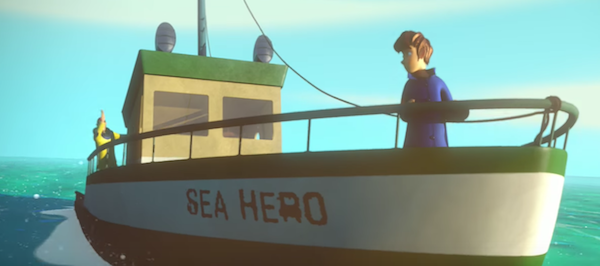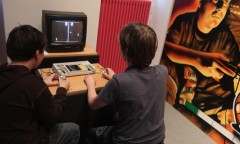By Vishal Goel, | November 19, 2016

Sea Hero Quest, a mobile-based navigation game, is being used to carry out study to fight dementia. (YouTube)
Sea Hero Quest is a mobile-based video game that tests the spatial navigation skills of users. It is being used as part of the largest dementia study in history.
The game has generated 9,400 years' worth of research data since its launch in May after having been played by over 2.4 million users.
Like Us on Facebook
Dementia is a chronic or persistent disorder of the mental processes caused by brain disease or injury. It is characterized by a gradual loss of brain function - thinking, remembering, and reasoning. It is currently incurable and reportedly affects 850,000 people in the UK currently. It is also the leading cause of death in England and Wales. Alzheimer's is the most common form of dementia accounting for 62 percent of all diagnosed cases.
The study is the result of a collaboration between Deutsche Telekom, Alzheimer's Research UK, game designing company Glitchers and various scientists. Experts hope to use the data collected by the game to create a global benchmark out of the spatial navigation which is one of the first abilities affected by dementia and as a result, to develop the game into an early diagnostic test for the disease.
Dr. Hugo Spiers of the reputed University College London presented the preliminary findings at the Neuroscience 2016 conference in San Diego. He claims that this is a one-of-a-kind study happening on such a large scale. Its accuracy is far more than all the previous research, and the results have shown huge potential to support vital developments in dementia research.
In Sea Hero Quest, players navigate a boat through water in differently themed areas over 75 levels while collecting items along the way. The experts found stark differences in strategies employed by both genders. They also found that early adulthood marked the decline in spatial navigation abilities. For example, players aged 19 (the youngest in the study) had a 74 percent chance of accurately hitting a target as compared to 75-year-olds (the oldest in the study) who had a 46 percent chance. This decline over time contradicts previous studies which did not support a decline in cognitive abilities until later in life.
The scientists will carry out further analysis of the data over the next two years. In the meantime, the game continues to be available for free download.
-
Use of Coronavirus Pandemic Drones Raises Privacy Concerns: Drones Spread Fear, Local Officials Say

-
Coronavirus Hampers The Delivery Of Lockheed Martin F-35 Stealth Fighters For 2020

-
Instagram Speeds Up Plans to Add Account Memorialization Feature Due to COVID-19 Deaths

-
NASA: Perseverance Plans to Bring 'Mars Rock' to Earth in 2031

-
600 Dead And 3,000 In The Hospital as Iranians Believed Drinking High-Concentrations of Alcohol Can Cure The Coronavirus

-
600 Dead And 3,000 In The Hospital as Iranians Believed Drinking High-Concentrations of Alcohol Can Cure The Coronavirus

-
COVID-19: Doctors, Nurses Use Virtual Reality to Learn New Skills in Treating Coronavirus Patients











